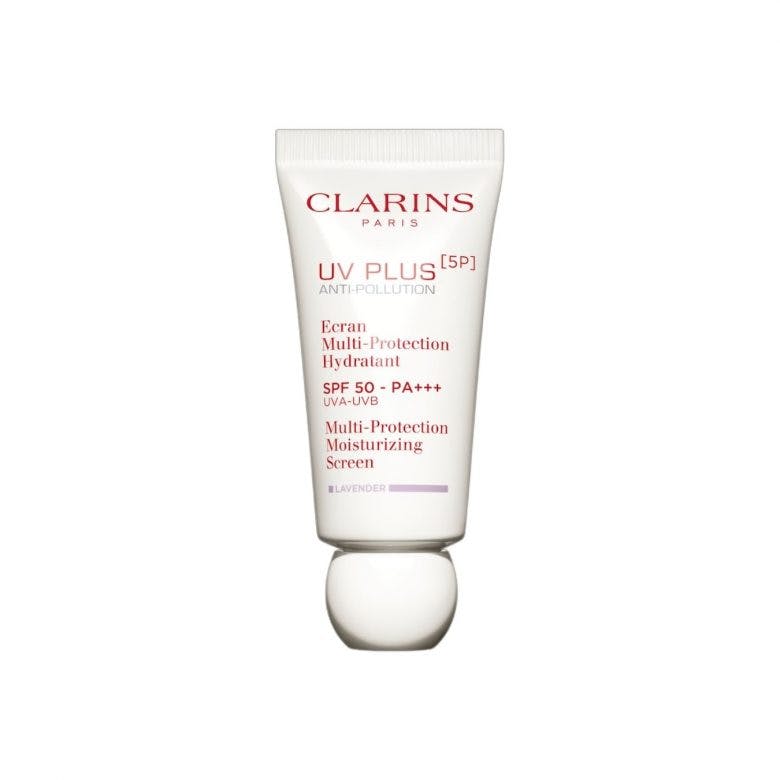What Is Pollution Doing To Your Skin?
6 minutes read
Pollution and the sun both generate free radicals, DNA damage, and inflammation.
If you live in the city, chances are you are more susceptible to premature skin ageing than those in rural areas. Urban dwellers are said to develop 22% skin pigmentation due to prolonged and repetitive exposure to both environmental pollution and UV.
And its threat is inescapable. WHO says 99% of the global population breathes air that exceeds guideline limits.
Fortunately, the tides are turning and the skincare industry is tackling the problem with anti-pollution products designed to deal with the stress of city life.
We ask the skin experts about the adverse effects of pollution and ways to pollution-proof your skin.
Does air pollution affect the skin?
The assertion that pollution is bad is a no-brainer. Air pollution kills an estimated seven million people every year and has been linked to serious health conditions such as cardiovascular, respiratory diseases and mental health problems.
Recent studies have also linked exposure to air pollution to have made Covid-19 infections more severe resulting in higher death tolls in some of the most globally polluted areas.
However, skin damage is perhaps its most visible and manifests itself with fine lines, rashes, sensitivities, blemishes, pigmentation problems, dry and rough skin.
What pollutants should we watch out for?

There are different types of environmental pollutants floating around that are invisible to the naked eye. Unfortunately, all of these can have a negative impact on the skin.
Here’s a rundown of some pollutants you’re up against: Solar ultraviolet radiation (UVR), nitrogen oxides (NOx), particulate matter (PM), blue light, screen pollution and cigarette smoke.
Health authorities said that PM, or so-called ‘particle pollution,’ affects more people than any other of these pollutants. This includes different types such as microscopic specks of dirt, debris, dust, soot, smoke. At the same time, other contaminants are released into the atmosphere from sources like fires, manufacturing companies, construction sites, and power plants.
Traffic pollution emerged as the single most toxic substance for the skin. The UK government regulation has decreased emissions over the years and plans to have zero-emission by implementing full electric cars by 2030.
But the air surrounding us is still far from pristine. Pollutants generate free radicals that exist in the atmosphere alongside the polluted air. These particles carry a lot of other toxins and guess where they end up? Right on your face.
What are free radicals and how do they affect our skin?
Not only are we breathing in pollution every day, but it’s also sitting on our skin and is a key cause of free radical damage.
Here’s what experts want you to know about free radicals: they are unstable molecules with unpaired electrons. The free radicals in the air rob other cells of electrons to reach a more stable state like human cells. By stealing electrons from your body’s cells, they start to damage the skin’s natural protective barrier.
Once this barrier is compromised, lipids and collagen start to break down, thus accelerating the ageing process, aggravating sensitive skin, clogging pores and creating a layer of filth which leaves complexions dull, irritated and fatigued.

“Free radicals can be produced from several different sources: atmospheric, indoor, blue light and photo-pollution. It’s about protecting your skin from the pollution that you are exposed to and the best all-rounder is UV+[5P], £34 because that approach protects you from the sun as well as other forms of pollution,” says Clarins Training Manager, Charlotte McHale.
Can pollution cause acne?
Yes. Pollution causes acne. Skincare experts say that living in urban areas where there is a lot of pollution; it’s common for it to collect on the skin and block pores. If pores are not properly cleansed, they can turn into pimples.
One epidemiological study explored the prevalence of greasy skin in a metropolitan area and found that more participants reported having greasy skin than those living in non-polluted areas. Pollution is a recipe for disaster for people with already oil-prone skin.
Skincare experts said that you could protect your skin by removing pollution particles by exfoliating. Fresh Scrub, £26 works best for all skin types.
For people with oily skin, you might benefit from the salicylic acid beads from the Pure Scrub, £26. “This exfoliator gently removes dead skin cells while deep-cleansing pores. In addition, it has got organic alpine willow herb extract that helps reduce the activity of sebum production, thus tightening the pores and minimising shine,” McHale explains.
She advises not to rub too hard when exfoliating as the beads will do the job. Exfoliate once or twice a week. More than that will irritate and agitate your skin.
Given the toxic combination of UV and pollution, it’s essential to make sure you double cleanse thoroughly at night to remove particulate matter trapped in layers of SPF and makeup. Double cleansing should be a non-negotiable part of your skincare routine. McHale’s top pick for getting rid of pollution particles on the skin is the Velvet Cleansing Milk, £25.
“It’s anti-pollution in the sense that it draws impurities away from the skin. It is formulated with moringa extract that’s great for removing debris from the skin. It’s a good way to purify at the end of a working day when your skin has been exposed. My advice is to use UV5P in the day and then use the velvet cleansing milk at night,” she recommends.
Layering with antioxidant serum creates a layer of protection against pollution. The Double Serum, £85 is formulated with 21 plant extracts with powerhouse antioxidant turmeric as its hero ingredient.
Can pollution worsen eczema?
Yes. Exposure to pollution can trigger or exacerbate inflammatory skin diseases such as eczema, rosacea and psoriasis. This is because the damage to the skin’s natural protective barrier causes water to evaporate from the skin, leading to dryness and dehydration. Incorporating hydrating ingredients, such as vegetable squalane, into your skin will help.
Vegetable squalene and clary sage extract will soothe, nourish, and protect people with sensitive skin. These ingredients are found in the Calm-Essential range. This will protect your skin against external aggressors.
How to protect your skin from sun and pollution naturally?
Pollution also causes uneven skin tone, dark spots and skin cancer. Pollution is all bad, but the sun is still your biggest worry. 80% of free radical formation is from UV radiation. Wearing SPF is your number one defence against the harmful effects of the sun’s rays. According to McHale the higher the SPF, £24 the better to prevent skin pigmentation.
If you want to brush up your environmental skills and see what work needs to be done – then check out a TED Talk with environmental strategist Professor Johan Rockström. He is the joint director of the Potsdam Institute for Climate Impact Research, who talks about why we need to change our habits to help combat pollution and protect the planet…It’s eye-opening for sure.
Sign up for our newsletter
We will keep you in the loop for special offers, exclusive gifts and product news.

